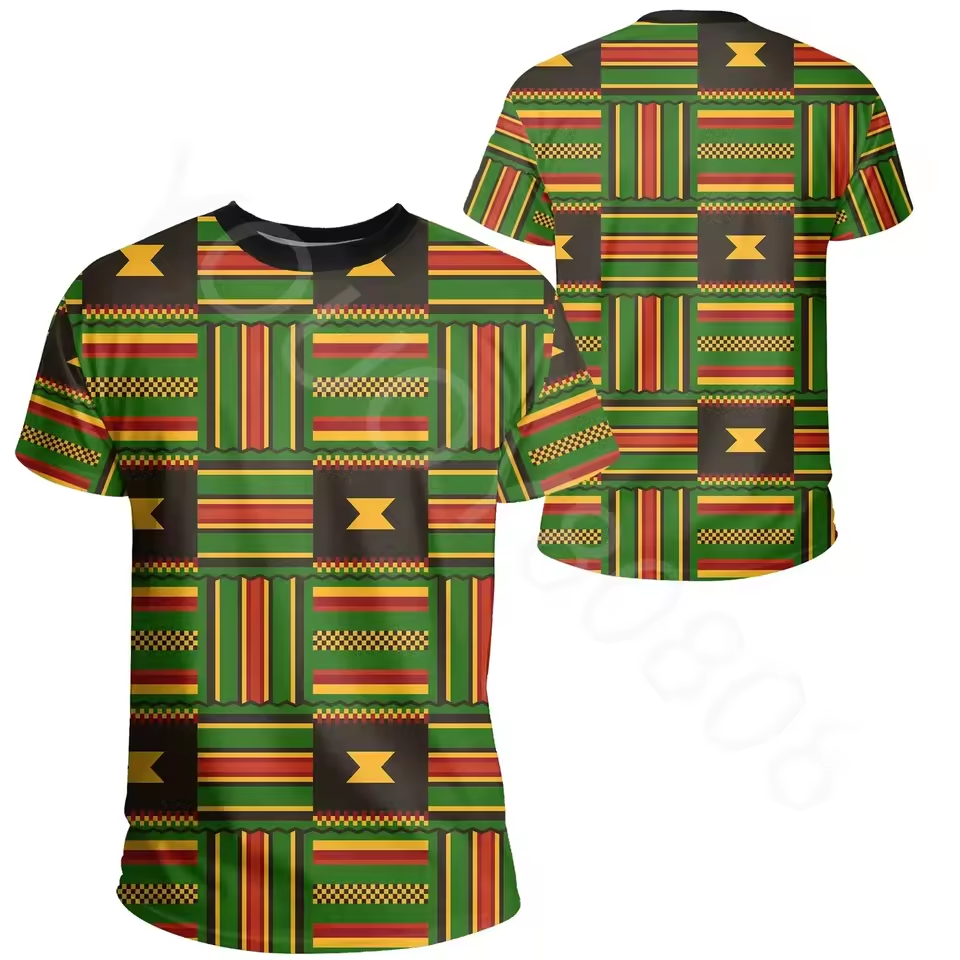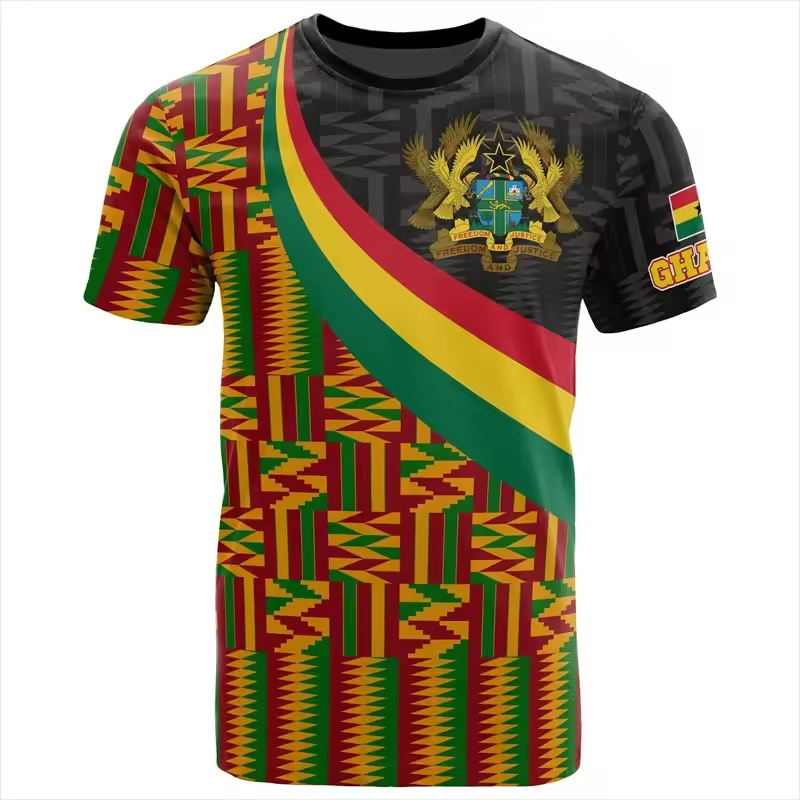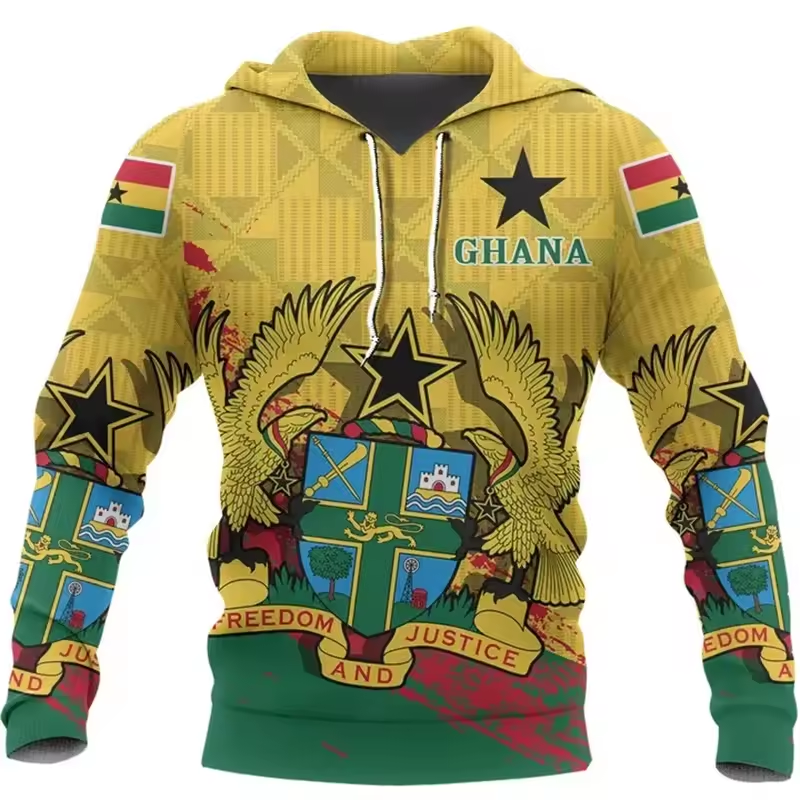🇬🇭 See Why Ghana‑Made Shirts Are Gaining Global Attention
Introduction
In recent years, Ghana‑made shirts have transcended beyond local markets to capture the imagination of fashion enthusiasts around the world. Combining centuries‑old textile traditions, vibrant designs, ethical manufacturing, and strategic e‑commerce initiatives, Ghana’s apparel sector is emerging as a powerhouse in global fashion. This deep dive explores the factors fueling this ascent, including Ghana’s rich cultural heritage, craftsmanship excellence, sustainable production methods, and the digital platforms that bring these unique garments to an international audience. We’ll also highlight how supporting Ghana‑made apparel benefits local economies, and we’ll point you toward trusted platforms for authentic, high‑quality Ghanaian shirts.
A Rich Tapestry of Textile Heritage
Origins of Ghana’s Weaving Traditions
Ghana’s textile legacy dates back centuries, shaped by the Akan, Ewe, and other ethnic groups whose pioneering weavers perfected techniques such as strip weaving and tie‑and‑dye. The famous Kente cloth, woven in bright geometric patterns, has become an icon of African royalty and cultural pride, often reserved historically for significant ceremonies and dignitaries. Today’s Ghana‑made shirts often incorporate Kente‑inspired motifs, merging tradition with contemporary fashion in a way that resonates with global consumers seeking authenticity and cultural storytelling in their wardrobe .
Modern Adaptations and Innovations
While Kente remains emblematic, Ghana’s textile artisans have expanded into batik, adinkra stamping, and industrial printing techniques. Designers blend these methods to create hybrid fabrics—combining hand‑woven panels with digitally printed accents—that appeal to both heritage enthusiasts and trend‑driven markets. This fusion of old and new has positioned Ghana‑made shirts at the crossroads of artisanal craftsmanship and modern design.
📦 Order Custom T-Shirts – Fast Delivery Across Ghana
Exceptional Craftsmanship and Quality
Attention to Detail
One of the most compelling reasons Ghana‑made shirts stand out is the meticulous attention to detail. From precisely aligned patterns in strip‑woven fabrics to hand‑stitched hems and reinforced seams, these garments reflect a commitment to durability and comfort. Many small‑batch producers pre‑shrink and enzyme‑wash their cotton to ensure consistent fit and softness—attributes often missing in mass‑produced fast fashion.
Premium Materials
Ghana’s climate supports the cultivation of high‑quality cotton, and local mills have partnered with ethical cotton cooperatives to source natural fibers. Combined with imported blends—such as organic cotton–modal mixes—this material base produces shirts that are breathable, wrinkle‑resistant, and color‑fast. Consumers worldwide report that Ghana‑made shirts maintain shape and hue after dozens of washes, making them a sustainable investment in long‑lasting apparel.
Sustainable and Ethical Practices
Fair Trade and Community Empowerment
Sustainability in Ghana’s apparel sector goes hand in hand with ethical production. Numerous cooperatives adhere to Fair Trade principles, ensuring weavers and tailors receive living wages, safe working conditions, and access to healthcare and education programs. By choosing Ghana‑made shirts, global consumers directly support rural communities where textile art provides crucial livelihoods.
Eco‑Friendly Dyeing and Waste Reduction
Environmental stewardship is another pillar of Ghana’s rising textile scene. Artisans employ low‑impact natural dyes—derived from indigo, turmeric, and plant extracts—to reduce chemical runoff. Additionally, fabric off‑cuts are upcycled into accessories like headwraps and tote bags, minimizing waste. This zero‑waste ethos resonates with eco‑conscious markets in Europe, North America, and beyond, where sustainable fashion commands premium prices.
Digital Platforms Powering Global Reach
E‑Commerce Growth in Ghana
The proliferation of digital payment systems (e‑wallets, mobile money) and affordable shipping solutions has unlocked new channels for Ghanaian designers. Platforms such as Fredash Graphix (Ghana) offer curated collections of locally crafted shirts, complete with international shipping options. By integrating secure checkout and transparent tracking, these sites bridge the gap between Ghana’s ateliers and customers in over 50 countries.
Leveraging Social Media and Marketplaces
Beyond dedicated fashion portals, Ghana‑made shirts have gained visibility through Instagram, Facebook, and TikTok influencers showcasing “African prints” and “Made in Ghana” tags. Strategic partnerships with global marketplaces—Amazon, Etsy, and Zalando—have further expanded distribution. These multi‑channel approaches ensure that whether a shopper searches “affordable Kente shirt” or “sustainable cotton tee,” Ghanaian artisans appear prominently in search results.


D'IYANU Olu African Dashiki Shirt for Men – Comfortable African Attire – Short Sleeve Shirt in Regular & Plus Sizes


Afibi Women's Long Sleeve Henley T Shirts Button Down Loose Fit Tops Scoop Neck African Dashiki Shirts


D'IYANU | Dubaku African Dashiki for Men – Traditional African Attire – Embroidered Shirt in Regular & Plus Sizes
Real‑World Success Stories
Case Study – Fredash Graphix International Expansion
Founded in Accra, Fredash Graphix began as a local print shop specializing in custom event shirts. By 2023, they launched an e‑commerce arm, shipping handcrafted tees to diaspora communities in the US and Europe. Their “Heritage Collection,” which blends Kente panels with minimalist silhouettes, sold out within weeks of launch, demonstrating pent‑up demand for culturally authentic apparel. Today, Fredash Graphix processes over 1,000 orders monthly and has partnered with boutique retailers in London and Toronto.
Collaboration with Global Brands
Several Ghanaian designers have collaborated with international labels seeking fresh aesthetics. For example, a 2024 capsule collection with a Danish eco‑brand featured Ghanaian‑woven stripes incorporated into organic cotton basics. Such partnerships not only amplify market reach but also foster knowledge exchange—equipping local artisans with advanced design software and quality management tools.
Driving Economic Impact
Job Creation and Skills Development
The resurgence of Ghana’s shirt‑making industry has led to thousands of new jobs in weaving, dyeing, cutting, and stitching. Textile institutes in Kumasi and Tema now offer training programs in textile engineering and fashion marketing, ensuring a skilled workforce capable of meeting international standards. Investments by government agencies—such as the Ghana Export Promotion Authority—have provided grants and export subsidies, catalyzing growth among small and medium enterprises (SMEs).
Export Revenue and GDP Contribution
According to the Ghana Export Promotion Authority, textiles and apparel exports grew by 22% in 2024, contributing significantly to the country’s non‑traditional export revenue. As Ghanaian shirts fetch premium price points abroad—often 2–3× local retail value—the resulting foreign exchange helps stabilize the cedi and fund infrastructure projects.
Overcoming Challenges and Looking Ahead
Logistics and Supply Chain Constraints
Despite impressive gains, Ghana’s apparel industry faces hurdles. Inconsistent power supply and port congestion can delay production and shipment. To mitigate this, factories are investing in solar power and cold‑chain storage, while the government works to streamline customs procedures.
Balancing Tradition with Scalability
Maintaining artisanal quality at scale remains a delicate balance. Automated looms and digital pattern‑cutting machines increase output but risk diluting the handmade appeal that distinguishes Ghana‑made shirts. Many brands adopt a hybrid model—automating repetitive tasks while preserving hand‑finishing steps to retain authenticity.
Expanding into New Markets
Growth opportunities lie in Asia and Latin America, where consumers are increasingly drawn to African prints and ethical fashion. Trade missions and virtual showrooms are being organized to introduce Ghana‑made shirts to wholesale buyers in Seoul, São Paulo, and Dubai, setting the stage for the next wave of expansion.
How to Support and Shop Ghana‑Made Shirts
- Visit Fredash Graphix: Explore curated collections of custom, heritage‑inspired shirts—ideal for gifts or personal style statements. Browse Now →
- Follow Designers on Social Media: Instagram handles like @KentereignsGH and Tiktok @AccraArtisans regularly launch limited‑edition drops.
- Shop via Global Marketplaces: Use tags such as “Made in Ghana” or “African artisan shirts” on Amazon, AliExpress, Etsy, and eBay to discover new labels.
- Attend Virtual Pop‑Ups and Fashion Weeks: Platforms like Digital African Fashion Summit showcase emerging Ghanaian brands.
By consciously choosing Ghana‑made shirts, you not only enrich your wardrobe but also champion sustainable livelihoods and cultural preservation.

Men's Summer Short Sleeve Casual Street 3D Printed Short Sleeve Africa T-Shirt - Ghana Graphic Kent T-Shirt

Ghana Flag Map 3D Printed T Shirt For Men Clothes Casual Kids T-Shirt GHA National Emblem Tshirt Sport Male Jersey Africa Tops

3D Printing African Country Ghana IndependenceDay Hoodies The Republic-of Ghana Emblem Flag Graphic Hooded Sweatshirts Pullovers
Conclusion
Ghana‑made shirts are more than garments—they are embodiments of centuries‑old craftsmanship, vibrant cultural narratives, and ethical entrepreneurship. Through innovative designs, sustainable practices, and strategic digital outreach, Ghanaian apparel is carving out a distinctive niche in the global fashion landscape. Whether you’re seeking statement pieces adorned with Kente patterns or eco‑friendly basics, Ghana’s shirtmakers offer unparalleled quality and authenticity. As the world continues to embrace mindful consumption, Ghana‑made shirts stand poised to become enduring symbols of style, sustainability, and social impact.

